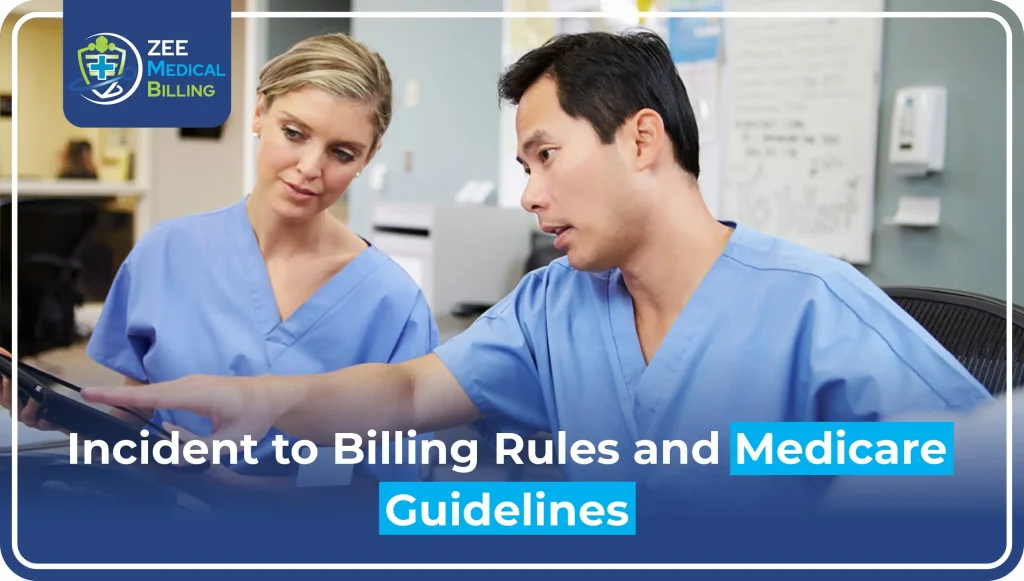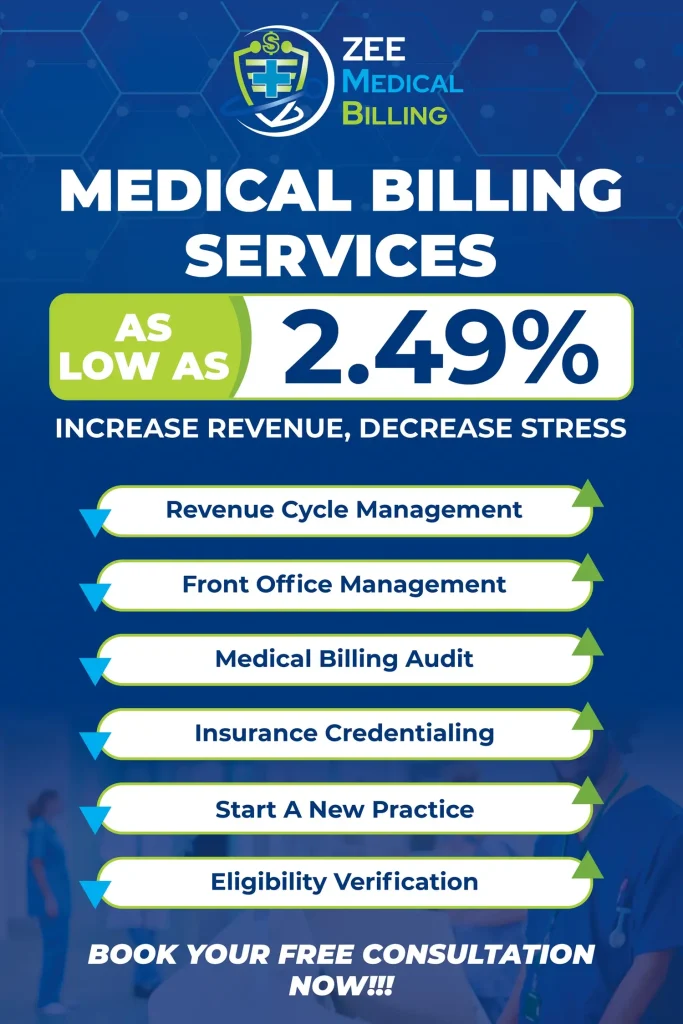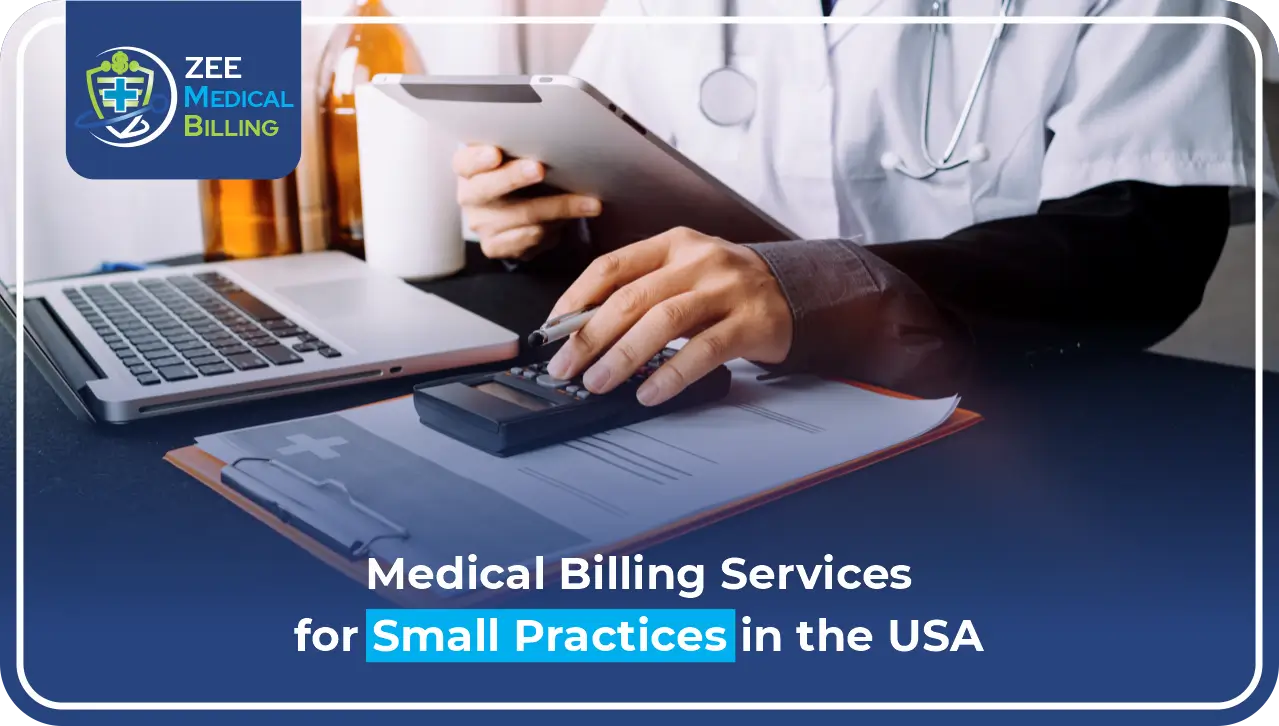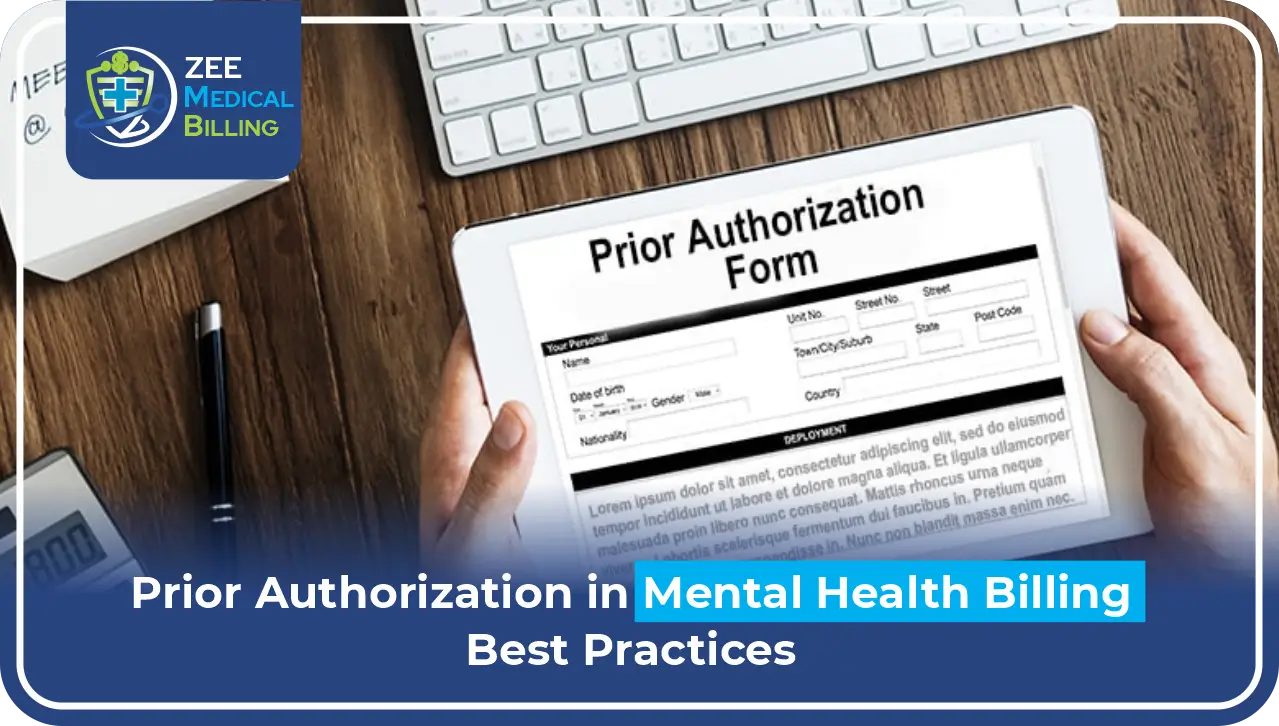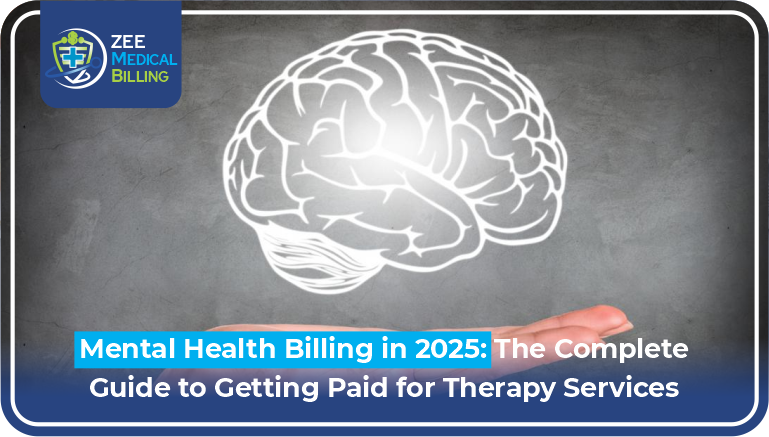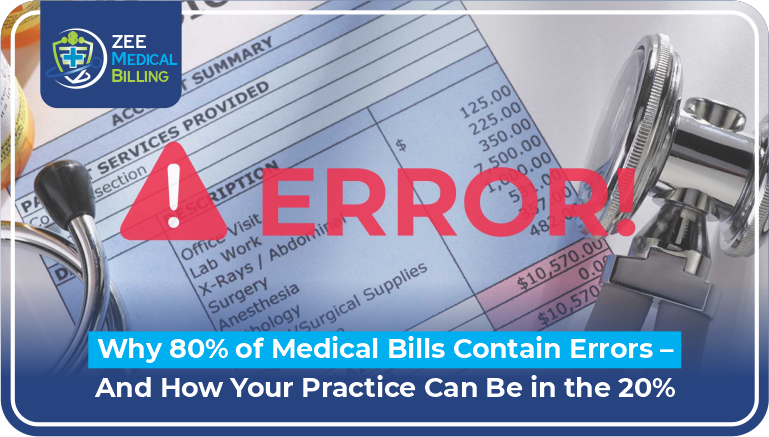“Incident to” billing is a term used by Medicare and other payers. It refers to services provided by non-physician practitioners (NPPs).
These include nurse practitioners and physician assistants. They work under the direct supervision of a qualified physician.
You can bill these services using the physician’s National Provider Identifier (NPI). This lets the practice get 100% of the Medicare fee schedule amount. This is better than the lower rate that NPPs usually receive.
Also Read: What Is Place of Service (POS) 21 in Medical Billing?
What Does “Incident to” Mean in Medical Billing?
The phrase “incident to” means that the service from the NPP is a key part of the doctor’s professional service. The doctor must start the patient’s care with a clear treatment plan. They must also be involved in the ongoing care.
Key Rules for Incident to Billing
1. The physician must perform an Initial Visit
- A physician must perform the initial patient visit and establish a diagnosis and treatment plan.
2. Physician Supervision is Required
- The supervising physician must be present in the office suite and immediately available during the NPP’s service.
3. Established Diagnosis
- The services billed must relate directly to the diagnosis that the physician previously established.
4. Billing Under the Physician’s NPI
- When these conditions are met, NPPs can bill for their services using the supervising physician’s NPI. This leads to full reimbursement.
Medicare Guidelines for Incident to Billing
Medicare has specific requirements to ensure compliance with incident-to billing:
- Supervision: The physician must be present in the same office suite but not necessarily in the same room.
- Documentation: Notes must clearly show that the service was part of the care plan started by the doctor.
- Employment Relationship: The NPP must be an employee, leased employee, or independent contractor of the physician.
Important: These guidelines only apply to outpatient and office settings, not to hospital or skilled nursing facility settings.
CMS and Incident to Billing Guidelines
The Centers for Medicare & Medicaid Services (CMS) explains incident-to billing in the Medicare Benefit Policy Manual. CMS emphasizes the following:
- Services must be medically necessary.
- Physicians must remain involved in the patient’s care.
- The NPP must be qualified and licensed.
Failing to meet these requirements may result in denied claims or audits.
Commercial Insurance and Incident to Billing
While Medicare has well-defined rules, commercial insurers may vary. For example, some commercial insurance providers in Pennsylvania (PA) may:
- Require pre-authorization.
- Not accepting incident to billing.
- Have different documentation or supervision requirements.
Checking with each payer’s policies before billing is crucial.
Incident to Billing for Mental Health Services
Billing issues can happen with mental health services from clinical psychologists, social workers, or counselors. These professionals may work under a psychiatrist or a primary care doctor.
Conditions include:
- The supervising provider must be actively involved in the mental health treatment.
- Services must comply with the diagnosis and plan developed by the physician.
- Some commercial payers may restrict billing based on mental health parity laws.
Comparison: Incident to Billing vs. Direct Billing
| Feature | Incident to Billing | Direct Billing |
| Who bills the service | Supervising Physician (NPI) | Non-Physician Practitioner (NPI) |
| Reimbursement Rate | 85% of the Medicare Fee Schedule | 85% of Medicare Fee Schedule |
| Supervision Required | Yes (on-site supervision) | Varies by state |
| Initial Visit Requirement | 85% of the Medicare Fee Schedule | Can be performed by NPP (in some cases) |
| Documentation Needs | Strong continuity from the physician’s care plan | Independent NPP records |
Real-World Example: Proper Incident to Billing
A Medicare patient visits a primary care clinic. The physician diagnoses diabetes and creates a treatment plan. A nurse practitioner follows up every two weeks for routine blood sugar checks and medication adjustments. During those visits:
- The physician is on-site.
- The nurse practitioner follows the established care plan.
This qualifies for incident-to billing, and the practice can bill under the physician’s NPI.
Also Read: What Is a Superbill in Medical Billing? Full Guide
Incident to Billing Requirements Recap
- The physician performs the initial patient evaluation.
- Ongoing care must be within the plan created by the physician.
- The NPP provides the service while the physician is in the same office suite.
- The billing must be under the physician’s NPI.
Common Misunderstandings and Pitfalls
- Supervision Confusion: Presence in the building is not enough. The physician must be available and on-site.
- Improper Initial Visits: A physician cannot bill for a new problem addressed by an NPP.
- Inadequate Documentation: Lack of documented continuity with the physician can lead to claim denials.
FAQs
1. What does “incident to” billing mean?
“Incident to” billing refers to services provided by a non-physician provider. These services are part of a treatment plan that a physician started. The physician bills these services under their NPI for full Medicare reimbursement.
2. Can a nurse practitioner see a new patient under incident to billing?
No. The physician must see the patient first and create a treatment plan. The nurse practitioner can then provide follow-up care under that plan.
3. What happens if the physician is not in the office?
If the doctor is not in the office while the NPP provides service, you cannot bill for it under the incident. Instead, the provider must bill the service under the NPP’s NPI at a reduced rate.
4. Do commercial insurance plans follow the same rules?
Not always. Each payer has its own policies. While some may recognize incidents of billing, others do not. Verifying each plan’s requirements is essential.
5. Does incident-to billing apply to hospitals?
No. Incident to billing only applies to services given in doctor offices or outpatient clinics. It does not apply in hospitals or skilled nursing facilities.
Conclusion
Understanding incident-to billing is crucial for compliance and accurate reimbursement in outpatient settings. By following CMS guidelines and maintaining proper documentation, healthcare providers can optimize their billing practices. However, because of variations in commercial insurance policies, always confirm payer-specific rules.
Need Expert Medical Billing Services?
Zee Medical Billing provides professional billing solutions tailored to healthcare providers across the United States. In addition to offering top-tier support from our main office, we proudly serve clients in Illinois, Indiana, California, Kentucky, New York, Washington, Georgia, Alabama, South Carolina, Texas, Pennsylvania, Ohio, New Hampshire, Nevada, Massachusetts, Hawaii, Arizona, and Colorado! Whether you’re looking to streamline your revenue cycle or improve claims accuracy, you can reach out to us to learn more about how we can support your practice.

